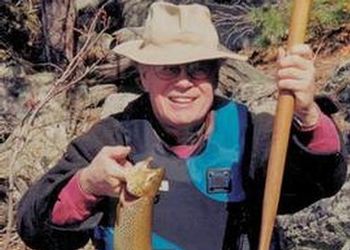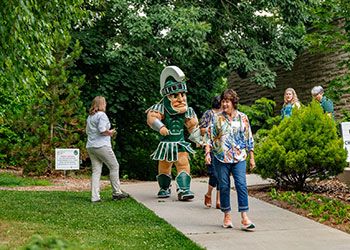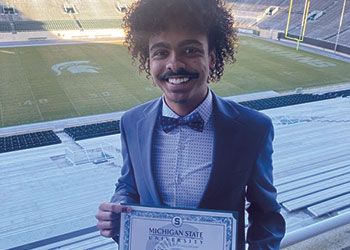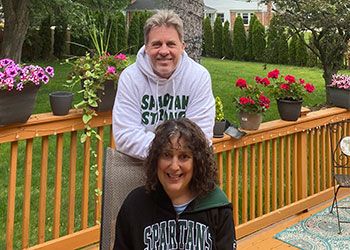Looking back on a unique, unplanned distinguished career
By Lois Furry
June 21, 2011
An accomplished economist and financial market specialist, Gary Seevers was a partner on Wall Street, advised two U.S. presidents, and counted among his mentors both former Treasury Secretary Robert E. Rubin and former Federal Reserve Chairperson Alan Greenspan. He credits much of his success to being a part of Michigan State University.
His Michigan State affiliation began on his family farm when, as a youngster he, participated in 4-H. He was a charter member of MSU’s Honors College in 1956 and went on to earn three degrees from MSU in Animal Science and Agricultural Economics.
He was always guided by honesty, something he considers very consistent with MSU and the agriculture community. “I can’t mislead people,” he said. “So, I felt at ease whether speaking to the president of the U.S. or the custodian at my children’s school.”
He also strongly believes that the best opportunities aren’t planned. “When opportunity came, I accepted the challenge,” he said. “Developing a career plan can put blinders on you.”
Many of his career breakthroughs came through recommendations from his MSU professors. His first job was as a 4-H agent in Lenawee County, which led to his first stint in Washington, D.C. with a national 4-H foundation study. He also worked for a time as a 4-H agent for Ingham County—a job he still considers to have been the hardest he ever had. By the time he completed his doctorate, he had offers at f ive universities. After weighing the pros and cons, he chose Oregon State University which may have been the least attractive but the most pioneering position.
The most exciting moment of his career came early, when President Richard Nixon appointed him to one of the three positions on the President’s Council of Economic Advisers. While heading home that evening from his meeting with the president, in the same Dodge van he had driven from Oregon with his wife and four children, he heard celebrity broadcaster Gabriel Heatter discussing his appointment on the radio. “Later I learned that the New York Times had called to talk to my father,” he recalled. “It really was quite a phenomenal thing for a young agricultural economist from a land-grant institution.” Food inflation and economic tumult catapulted Dr. Seevers to the center of White House activity. “I did that until I was worn out, so I joined a new agency,” he said. As commissioner and acting chair of the Commodity Futures Trading Commission, he was exposed to the world of futures markets, which led him to Wall Street. He finished his career at Goldman Sachs serving as a general partner.
He has manifested his appreciation for his alma mater with significant gifts of money and time. In 2000, he created the Gary L. Seevers Scholarship fund for Honors College students with a gift of $600,000. In 2004, he joined with President Emeritus Gordon Guyer to establish the Guyer/Seevers Chair in Natural Resource Conservation, providing a seed $1.25 million cash gift and adding a $1 million charitable gift annuity in 2007. In 2010, he again added to that legacy with a $1 million charitable remainder trust to provide a future gift to both the Seevers Scholarship and the Guyer/Seevers Chair. Gary received the Philanthropist Award from the MSU Alumni Association in 2004. He is a life member of the association and is recognized in MSU’s Clifton R. Wharton Society. He has also been an active volunteer for MSU, serving on the MSU Foundation Board for eight years and as a member of the University Investment Advisory Sub- Committee. He was a primary architect in the revision of the Foundation Investment portfolio, which significantly increased returns. Likewise, his sage advice helped guide the university portfolio through the most recent financial crisis, noted Fred Poston, MSU vice president for finance and operations and treasurer.
“When I contemplate the complete Spartan, Gary comes to mind,” said Dr. Poston. “He is generous with his time and his money, thoughtful with his advice, and an ardent advocate for MSU. In addition to these fine traits, he is a pretty good fisherman, and a really nice guy. I have been fortunate to serve with him and to call him a friend.”




